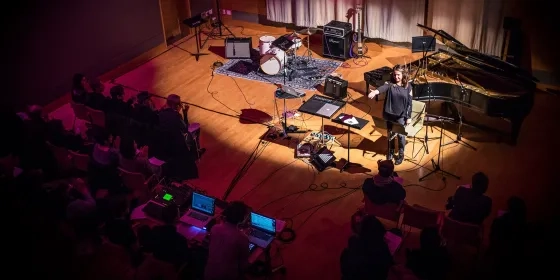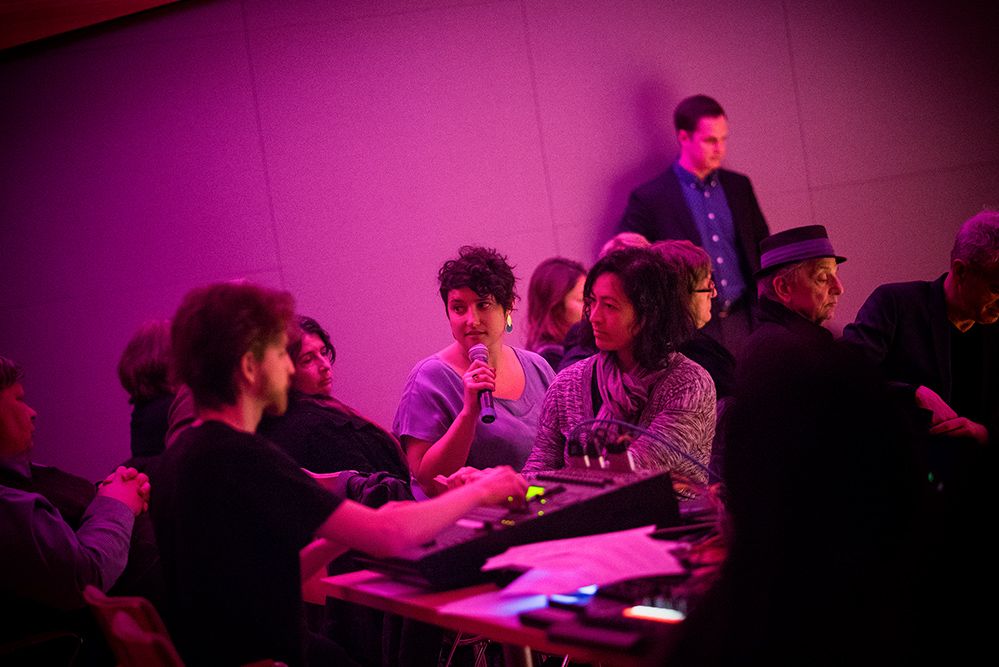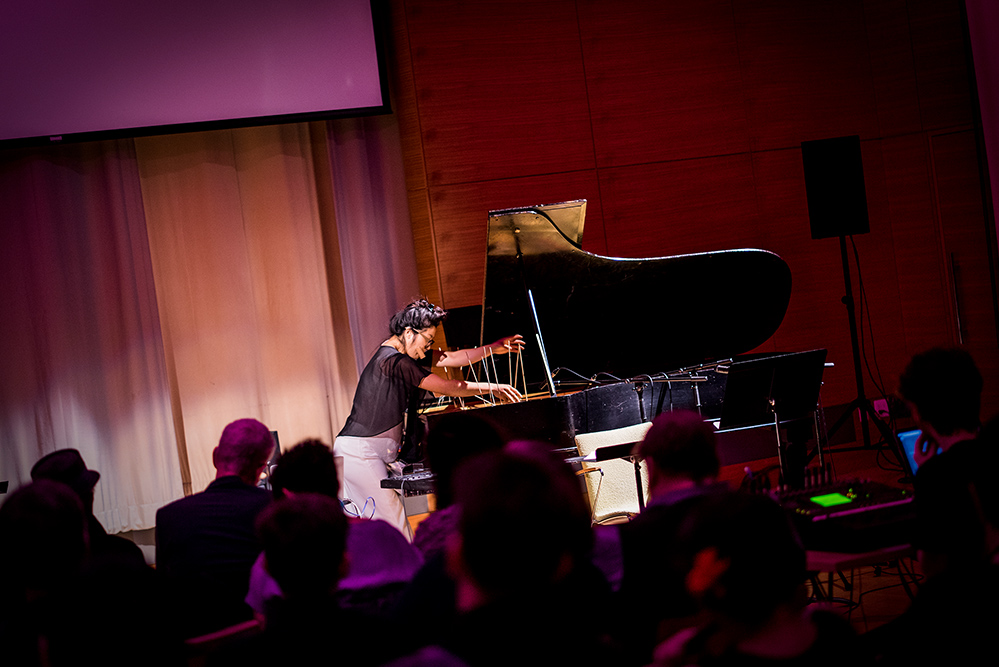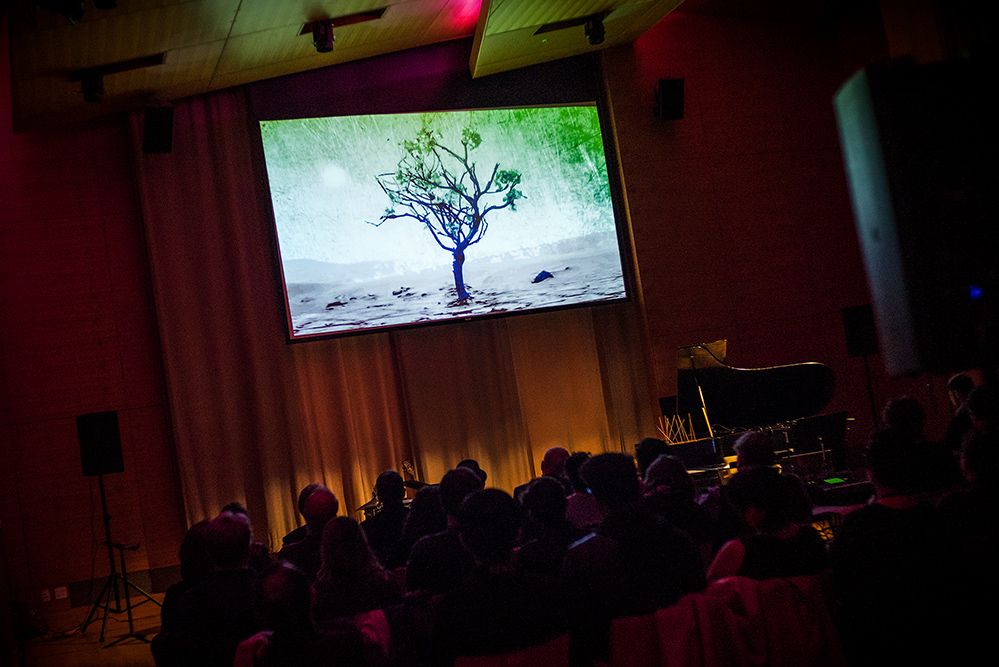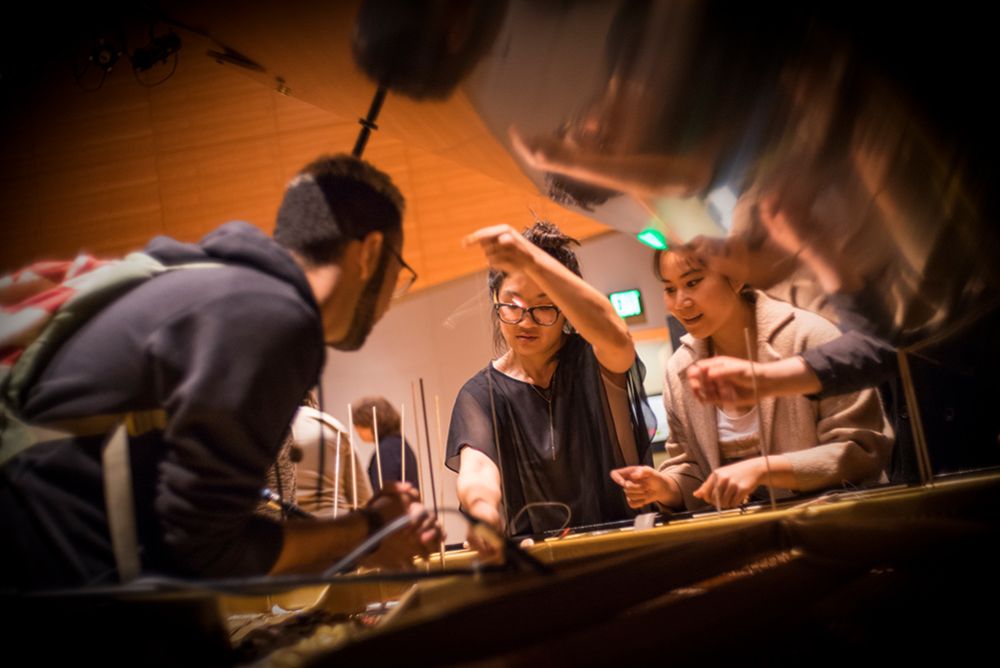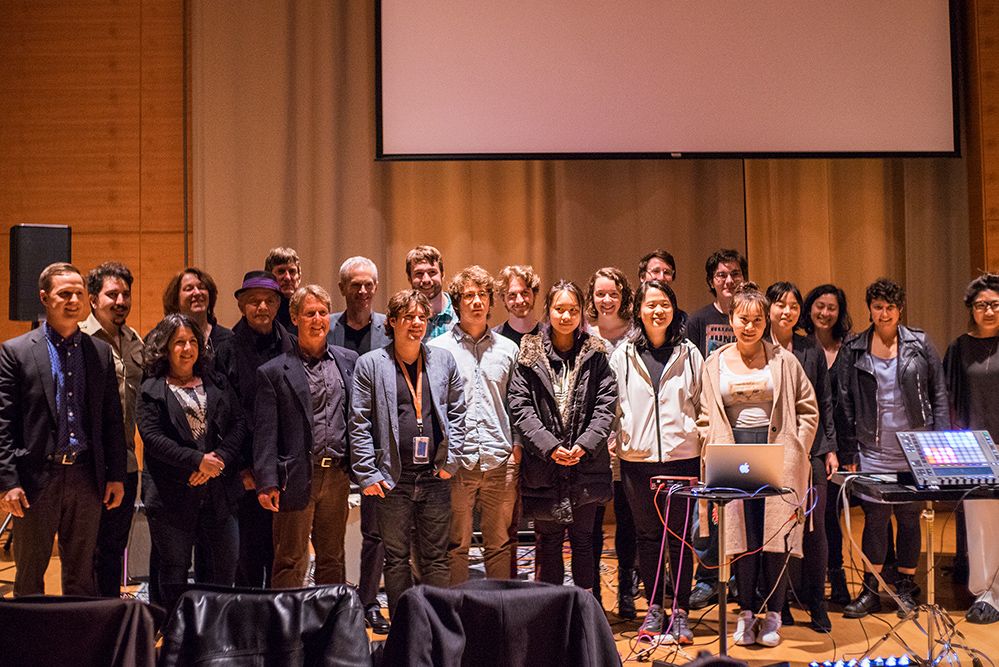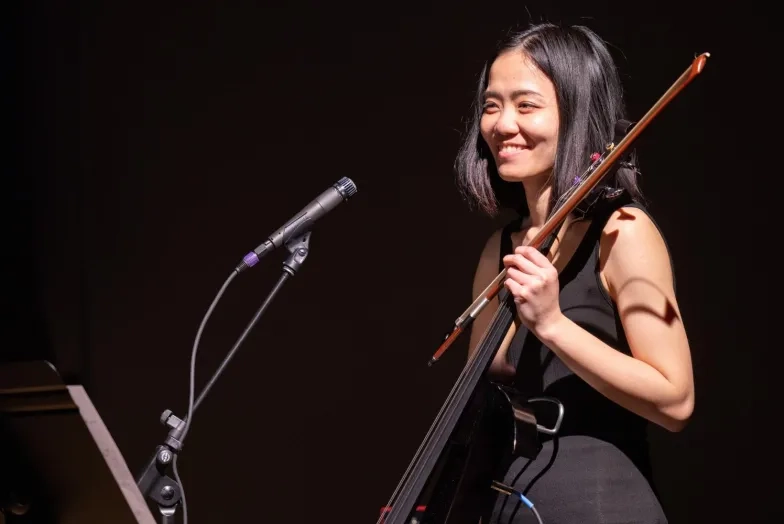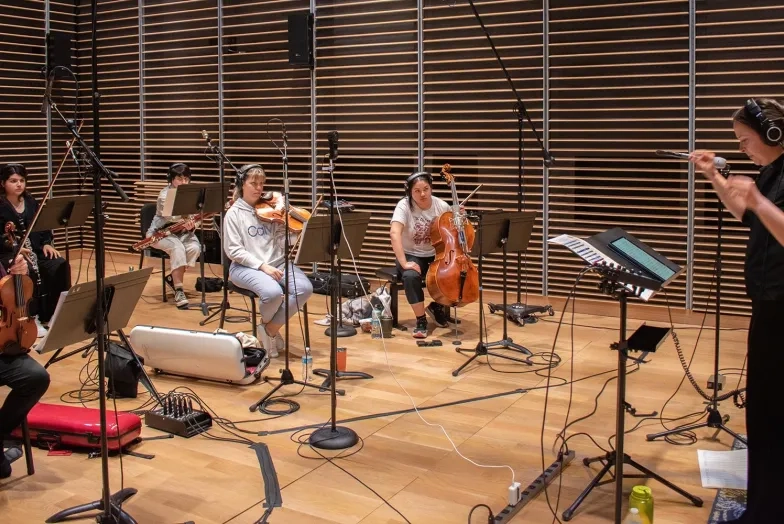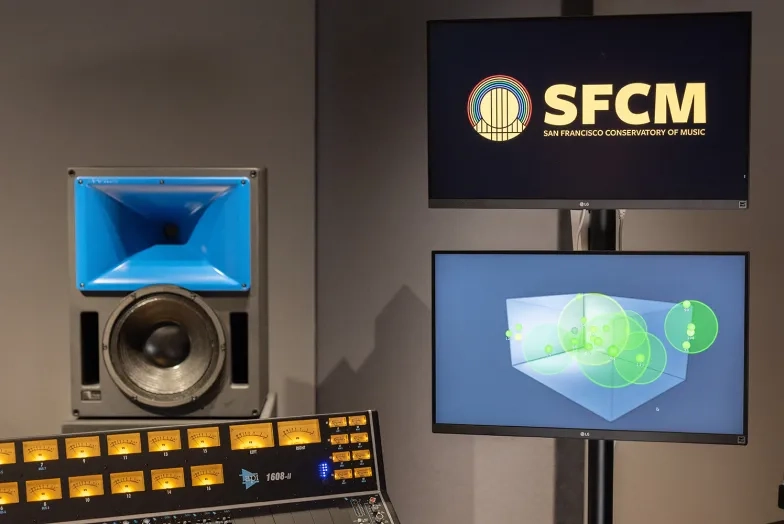TAC Collaborates with the ClimateMusic Project
SFCM’s Technology and Applied Composition (TAC) program is known for collaborations that run deep through the sectors of science, technology, and entertainment. With a focus on the relationship between music, sound, and climate change, TAC found a partner this year with the ClimateMusic Project, and organization whose mission states that it enables “the creation and staging of science-guided music and visual experiences to inspire people to engage actively on the issue of climate change.”
The opportunity for TAC’s cadre of uniquely talented students to create in these parameters was almost too tantalizing. Students would create their own projects, discovering and engaging with the issue of climate change through their own compositional process, from sound designs to live concert experiences. A culminating concert event took place April 15 at SFCM.
From Charlie Sehres’ ’19 tape piece, Dissolve, which was composed to portray the melting of Antarctic ice by using actual sounds of ice movement, to Cody Mosblech’s ’18 and Helen Tanubrata’s ’18 installation, serenity, using water level data to inform a recorded piano piece, the projects exuded some of the most varied presentations yet produced by the TAC program.
“The ClimateMusic Project collaboration has been almost a year in the making,” said SFCM faculty member Taurin Barrera. “TAC Executive Director MaryClare Brzytwa and I attended a wonderful ClimateMusic concert in the Spring of 2017 and thought it would make for a excellent collaboration within the TAC program. In my Theory of Musical Synthesis course, I introduce a variety of topics including interactive music systems, algorithmic music, sound installation, and sonification, so it made sense to use this class as a vehicle for the collaboration.”
It wasn’t just a musical connection that was being made throughout this collaboration, either. Science played an important role in determining everything from sound to style.
“Not only was the SFCM ClimateMusic Project an opportunity to focus on data sonification and visualization practices through the lens of momentous climate data, it was also an opportunity to incorporate Earth science, spreadsheets, and mathematics into a course primarily about programming, sound design, and synthesizers,” said Barrera. “This project really outlined what we do in the TAC program. I was really thrilled to see the Osher Salon filled with so many new faces and audience members from around the Bay Area.”
“The variety of realizations of the data was the most impressive thing,” said SFCM alumnus Erik Walker ’81, a composer on the ClimateMusic Project’s team who attended the concert. “Every piece took a different angle on how to implement climate data and have it control [or] modify music and sound. The drone piece, the ’tree’ piece (especially the control on harmony), the interactive website piece—all of them gave me something to think about. I particularly liked the ‘talking heads of climate deniers’ being affected by the climate data, basically blowing them up. That was art. Given the time frame for the completion of the pieces, the students did an amazing job.”
“Projects like these are one of my favorite parts about being in the TAC program,” said Emily Pitts ’18, a current professional studies diploma candidate whose project required audience participation using mobile devices to create an interactive soundscape. “The project was a unique opportunity to tackle a real problem—communicating the urgency of climate through sound, art, and technology. I think that the weight of the issue inspired everyone involved to bring their best and most unique talents, so the resulting show was both thought provoking and varied. The show has also motivated me to continue working on my project in the hopes of bringing it to a wider audience and making a bigger impact in the future.
As one who has been at the forefront of the ClimateMusic Project’s initiatives, Walker thought this event was especially meaningful and in line with the ambition of the organization, which appears to quite grand.
“I loved the whole concept of doing this concert,” he said. “And if it were done on a massive scale, with young composers contributing their works to an online collection, along with performances, it would be a fantastic thing. I congratulate SFCM for taking on this project and doing such a stellar job with it.”
The ClimateMusic Project is an exemplar of TAC’s many ambitious collaborations outside the traditional concert experience. From working directly with the teams at Sony Playstation and Skywalker Sound on their campuses to getting hands-on experience with industry professionals at SFCM, the potential to drive the future of the industry—and maybe even the planet—is at these students’ fingertips.
